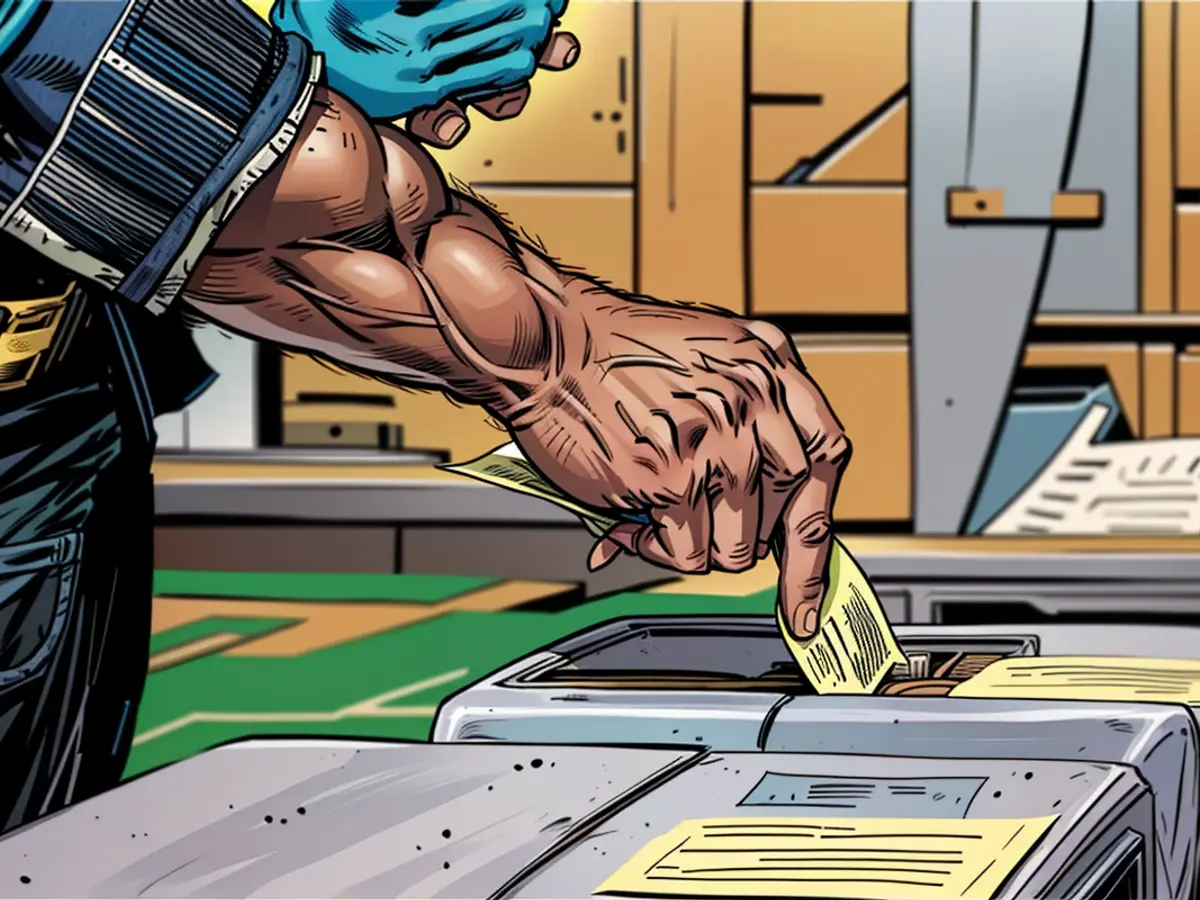Upcoming European vote - Federal Trend Influences Election Outcome via Traffic Light Gatherings
Traffic light party representatives in Rhineland-Palatinate expressed disappointment over their parties' performance in the European election, attributing it to the federal trend. SPD General Secretary Marc Ruland and Greens leader Paul Bünes voiced their concerns, while the deputy chairwoman of the Liberals, Daniela Schmitt, expressed concerns despite a slight gain in the state due to the federal trend.
The CDU emerged as the strongest party in the state with 30.4% of the votes, but saw losses in the European election.
The Social Democrats held on to second place with a loss of 4.1 points at 17.2%, while the Alternative for Germany saw a gain of 4.4 points at 14.2%. The Greens ended up with 9.5% (down 7.2%), the FDP achieved 6.5% (a 0.7% increase), and the Free Voters scored 4.9% (a 2.0% increase). The new party BSW of Sahra Wagenknecht received 4.7% of the votes in Rhineland-Palatinate.
CDU state chairman Christian Baldauf pointed fingers at the federal government for the gains of the AfD, saying it was "obviously also due to the fact that people are frustrated that they don't know where the anchor is right now." He argued that the real cause lay with the federal government led by the SPD, Greens, and FDP. "The traffic light is doing a really bad job, and that of course leads to a lot of frustration," he said. Baldauf went on to note that the CDU had secured the best result at the federal level, but improvements were still needed.
AfD State Chairman Jan Bollinger hailed the party's performance as a great success, arguing that voters trusted the AfD more than other parties for solutions to the current problems.
The voter turnout increased to 70.3%, compared to 64.8% five years ago. A final result on the projected outcome in Rhineland-Palatinate will be announced at 23:00.
Around 3.2 million people were eligible to vote in the state, including approximately 200,000 EU citizens. Six MPs from Rhineland-Palatinate were sent to the European Parliament in 2019, but it was unknown if this number would be reached again in the current election.
Read also:
- The upcoming European elections are seen as a significant test for the federal trend, particularly in Rhineland-Palatinate.
- Recent elections in Rhineland-Palatinate indicate a shift in voter preference, with the CDU losing ground while the SPD, Greens, and FDP maintain or slightly increase their share.
- Christian Baldauf, the CDU's state chairman, attributes the gains of the AfD to dissatisfaction with the Federal Government, led by the SPD, Greens, and FDP.
- The Rhineland-Palatinate results of the European elections are closely watched by political analysts, who use inferatest dimap polls to predict trends in Germany and the EU.
- AFG, led by Jan Bollinger, sees the European elections as a key opportunity to strengthen their position in Rhineland-Palatinate and Germany as a whole.
- Other parties, such as FW and Alliance 90/The Greens, also aim to make an impact in the European elections, hoping to capitalize on the discontent with the current political establishment.
- SWR, the regional public broadcaster, has provided extensive coverage of the European elections, interviewing key figures and providing updates on the polling results.
- Voter turnout in Rhineland-Palatinate was higher than in the previous European elections, indicating increased interest and engagement in the political process.
- Europe-wide, the European elections will have significant implications for policy and cooperation, and the results in Rhineland-Palatinate will contribute to the broader EU narrative.








